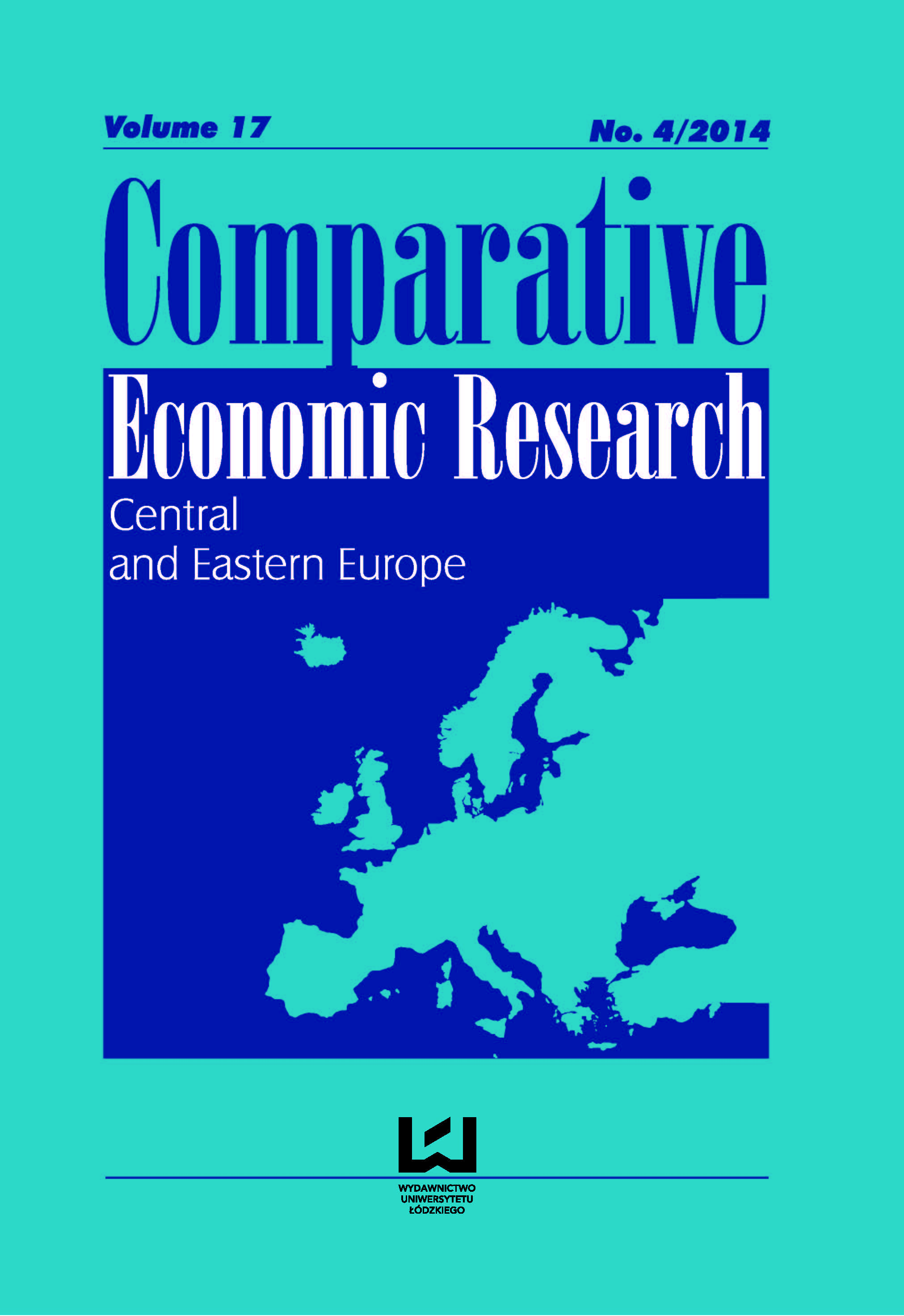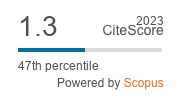A Spatial Analysis Of The Knowledge - Based Economy In Poland
DOI:
https://doi.org/10.2478/cer-2014-0042Keywords:
knowledge-based economy, measures of taxonomy, Knowledge Assessment MethodologyAbstract
The article presents a spatial analysis of the knowledge-based economy in Poland in regional terms in 2003 and 2011. Nowadays, knowledge is regarded as one of the factors of production besides land, labor and capital. The ability to create, collect and effectively use knowledge contributes to the generation of innovation, acquiring long-term competitive advantages and economic success. Polish provinces are the basic territorial units, on which the calculations have been carried out. The period of time was purposely chosen to determine the impact of Polish accession to the European Union and the possibility of using the Structural Funds in the development of local economies based on knowledge. The purpose of this article is to identify disparities in the use of knowledge in socio-economic life in the Polish provinces. The study was conducted using a taxonomic measure of development (one of the tools of multidimensional comparative analysis). Classification of provinces was constructed on the basis of KEI (Knowledge Economy Index) and KI (Knowledge Index) which are used by the World Bank in Knowledge Assessment Methodology (KAM). The division into four pillars (i.e. The Economic Incentive and Institutional Regime, The Innovation System, Education and Human Resources, Information and Communication Technology) attempts to explain the relationship between the factors of development.
Downloads
References
Drucker P. F. (1994), The Age of Social Transformation, [in:] The Atlantic Monthly, November, Volume 274, No. 5.
Google Scholar
Drucker P. F. (1997), The Future That Has Already Happened, ʻHarvard Business Reviewʼ, September-October.
Google Scholar
Dworak E. (2012), Gospodarka oparta na wiedzy w Polsce. Ocena, uwarunkowania, perspektywy, Wyd. Uniwersytetu Łódzkiego, Lodz.
Google Scholar
Jasiński L. J. (2009), Sektor wiedzy w rozwoju gospodarki, Wyd. Key Text, Warsaw.
Google Scholar
Kozarkiewicz-Chlebowska A. (2001), Koncepcja zarządzania wiedzą, jej geneza, zastosowanie i perspektywy, Wydział Zarządzania Akademii Górniczo-Hutniczej, Krakow.
Google Scholar
Kukliński A. (ed.) (2003), Gospodarka oparta na wiedzy. Perspektywy Banku Światowego, Biuro Banku Światowego w Polsce, Komitet Badań Naukowych, Warsaw.
Google Scholar
Schumpeter A. J. (1960), Teoria rozwoju gospodarczego, PWN, Warsaw.
Google Scholar
Strożek P. (2012), Potencjał wiedzy w polskiej gospodarce w badaniach Banku Światowego, ʻGospodarka Narodowaʼ, 11-12/2012, SGH, Warsaw.
Google Scholar
Suchecki B. (ed.) (2010), Ekonometria Przestrzenna. Metody i modele analizy danych przestrzennych, C.H.BECK, Warsaw.
Google Scholar
Świtalski W. (2005), Innowacje i konkurencyjność, Wydawnictwo Uniwersytetu Warszawskiego, Warsaw.
Google Scholar
OECD (1996), The Knowledge-Based Economy, General Distribution OECD/GD(96)102, Organisation for Economic Co-operation and Development, Paris.
Google Scholar
Wroniecki J. (2001), Nowa gospodarka: miraż czy rzeczywistość? Doktryna - Praktyka - Optyka OECD, [in:] Welfe W. (ed.), Przedsiębiorczość i Zarządzanie, tom III, zeszyt 3: Społeczeństwo oparte na wiedzy - wyzwania dla Europy Środkowej i Wschodniej XXI wieku, Kolegium Wydawnicze SWSPiZ, Lodz.
Google Scholar
Organisation for Economic Co-operation and Development: www.oece.org.
Google Scholar
The World Bank: www.worldbank.org.
Google Scholar
Downloads
Published
How to Cite
Issue
Section
License

This work is licensed under a Creative Commons Attribution-NonCommercial-NoDerivatives 4.0 International License.











